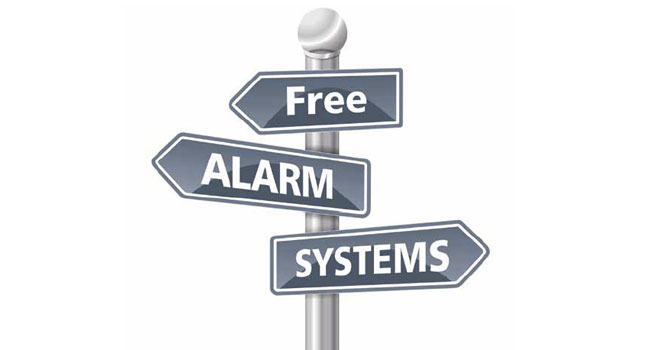
Steady Stream of RMR
Changing times require dealers to reexamine business plan
- By Barbara Holliday
- Jan 04, 2016
The “free alarm system” has been
around so long that many professionals
can’t remember a time when
it wasn’t the starting point for just
about any company looking to hang a keypad in
a customer’s home.
The equation has always been relatively simple:
A basic security system for zero down and
$24.99 a month equals a steady stream of RMR.
There have been variations on the theme over the
years, and new players have joined the game, but
the underlying concept has stayed the same.
But changing times are requiring us to re-examine
our thinking. Today’s dealers need to begin
questioning the true value of a free security system.
It’s time to consider a strategy that will help your
business, and our industry, grow in the long term.
NOT ONLY FOR THE WEALTHY
Electronic alarm systems started out as big-ticket
items purchased by the affluent to protect expensive
items and property. These consumers valued
electronic security as a way of protecting their
investment. They were willing to pay thousands
of dollars for equipment, along with an ongoing
fee for professional monitoring.
As alarm systems and devices became more
widely available at a lower cost, and as communication
methods became faster and more sophisticated,
security became a growth industry poised for
integration into the lives of mainstream consumers.
Eventually, several companies defined a business
model that introduced the “zero-down” market. It
worked for them because they had resources that
allowed them to absorb the upfront costs.
Independent dealers also could afford to
mass-market alarm systems by joining dealer
programs that would fill the role of financing or
reimbursing those upfront costs. Monitronics’
dealer program excels in that approach, providing
upfront capital that allows dealers to stock
the latest inventory, hire talented employees,
market their brands and grow their businesses.
As the market grew, the message stayed the
same: alarms are free.
SECURITY IS STILL
THE CENTERPIECE
But now there’s a problem with the “free security
system” narrative. We are cycling out of this
period in our industry into a new, dynamic marketplace
with a growing range of high-tech offerings.
Market penetration remains low, and too
many alarm dealers focus on simply recycling
consumers who already have home security. We
can grow the market with new consumers who
are not just interested in home security, but also
in home automation that enhances their security
and lifestyle.
That’s not to say that home security isn’t important; it saves lives and protects
property. In fact, research shows that up to 90 percent of consumers
believe that home security is one of the most important reasons to purchase
home automation.
There are hundreds of thousands of homes that are still in need of protection,
and we have the opportunity to move things in the right direction.
We can start by no longer giving away equipment.
BEYOND THE BASICS
Sophisticated home security has gone far beyond the basic system, becoming
even stronger with the addition of video cameras and remotely controlled
devices like locks and lights that are proven burglary deterrents.
Instead of simply re-signing customers or giving away alarms, we need to
promote the value of technology and develop pricing that matches the investment
we make in new installations.
There’s one obvious reason why this new approach makes sense. Monitronics’
experience shows that accounts with an initial investment are 33
percent less likely to cancel during the first year of service than those who
pay nothing up front. When consumers invest from the beginning, they
place greater value on their alarm systems.
MORE THAN JUST MONEY
It’s important to understand that the idea of doing away with free systems
isn’t about the dollar amount as much as it is the long-term benefit. There
are other benefits to requiring an initial investment.
By eliminating customers who are taking what they perceive to be a
“freebie,” you’re reducing your exposure to attrition and helping to create a
long-term customer. You’re also ensuring that every sale emphasizes value
creation not just through the importance of home protection, but also by
potentially growing a system through the enhanced security and lifestyle
of today’s home automation products. That’s an attractive proposition for a
homeowner who already understands the importance of investing in their
property. Internally, you’re separating the sales reps who can only give away
a system from the reps who can actually sell a system.
Today, we have access to more technology than ever before. As luck
would have it, we also have a world of consumers who are tech-savvy and
into the Internet of Things. They want to be connected, and they want to
be plugged in. These are our future customers, and we have the resources,
products and services to fill their needs. We’re not going to reach them by
giving away our systems, our expertise or our experience.
Traditional dealers are competing with new entrants to our industry, but
remember this: You can compete effectively by using that expertise and experience,
along with support from dealer programs like Monitronics. Start
by showing existing customers the benefits of today’s technology, and by
also emphasizing those benefits—as well as live monitoring—to new customers
looking for high-tech solutions.
Above all, stop giving away free systems. In the long run, it’s costing
more than you realize.
This article originally appeared in the January 2016 issue of Security Today.